Port Wentworth's rural Black communities under constant threat from development, city neglect
When it rains in Port Wentworth, the water rushes down Saussy Road, submerging yards and flooding the Saussy Canal. Ditches stuffed with debris swell to capacity. The thin, downward sloping road becomes a track for flowing water, sometimes keeping 72-year-old Georgia Benton from leaving her yard.
Different developers are working on both sides of the road to lay infrastructure for their future housing projects that will neighbor this community. On Saussy Road, a historically Black community, the developer knocked down “Children at Play” signs and blocked the ditch with gravel.
Across the highway, culvert sections line the cleared land of a future subdivision, ready to be placed underground in neat, efficient rows. The concrete tubes will serve as tunnels to ensure ditches drain under roads and driveways.
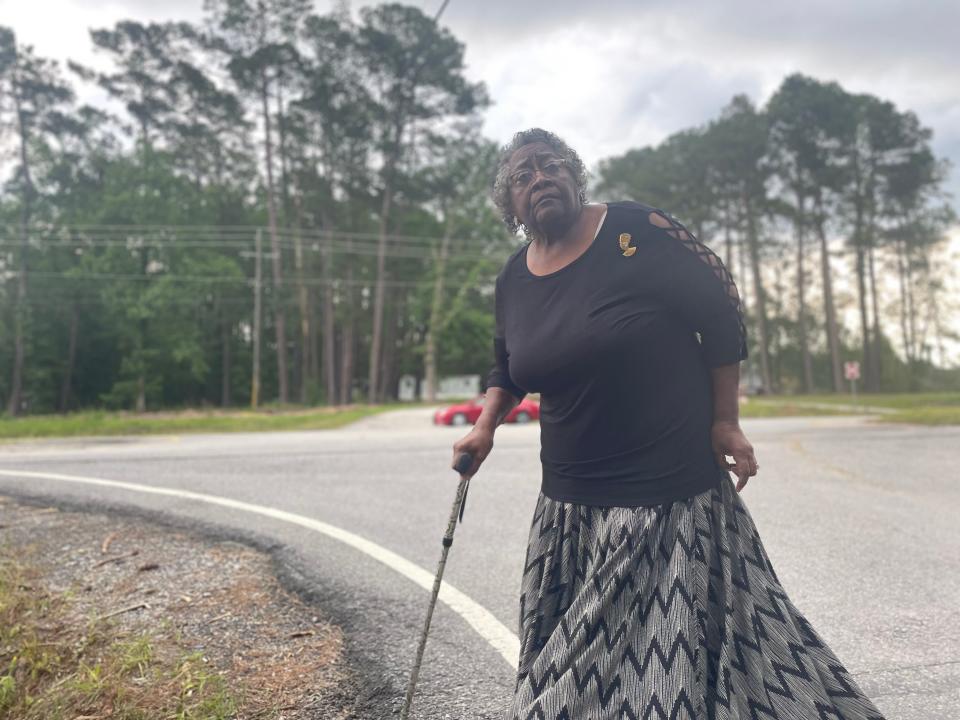
Across Port Wentworth’s northside, Black communities face dual pressures on their land and lifestyle. City officials and staff have ignored their infrastructure issues and lack of services for decades, creating adverse living conditions for several communities. And industrial development creeps closer to these communities, threatening their rural way of life, access to major roadways and services and the very land they’ve owned for decades.
“So why is it that you can follow the rules on the predominantly white side of the road, and on the Black side you do whatever you want to do, however you feel you want to do it?” wondered Benton, who’s lived on Saussy Road for 36 years.
The Benton family has been asking the city to clear their ditches and fix drainage issues along the Saussy Canal since they were annexed into the city in 1989. They’ve shown up to city council meetings, called the mayor and city manager, sent emails and dialed dozens of phone numbers.
Along with several neighbors, the Bentons sued the city for discrimination over the matter, resulting in a six-year legal battle. It ended in a 2009 settlement agreement that mandated the city to run water and sewage to their homes, and address the flooding.
The communities got their water and sewer, but the ditches are not maintained.
Growth impacting communities negatively
On Saussy Road, Benton and her neighbor have wrestled with flooding and drainage issues for decades. The infrastructure shortcomings have devalued her five-acre property and led to a lawsuit.
Benton’s is just one of a dozen households who see encroaching development as a symptom of the city’s apathetic view of their communities.
Residents in Berrien Road deal with flooded yards. Others in Meinhard are seeing their land taken by eminent domain for the Effingham Parkway, a new road to alleviate truck traffic through the city and provide new routes to warehouses to the north.
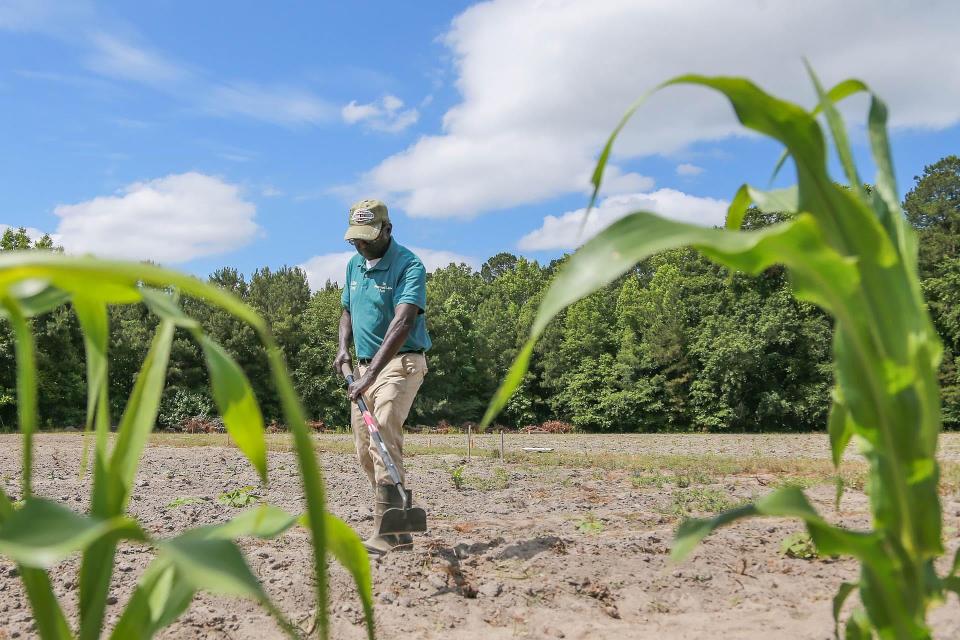
In Monteith, one family faces a pressure they've felt growing for years.
Monteith was established during the Civil War, when Roger Steele was deeded 40 acres a mule as part of Special Field Order No. 15, the land deal for emancipated slaves that was brokered by Union Gen. William T. Sherman.
At the intersection of Hendley and Monteith Roads, Maria “Flossey” White will be cut off from Georgia 21 for at least eight months as developers build out a logistics and warehouse park on Hendley, blocking access to the rest of Port Wentworth. What takes her five minutes will soon take 30.
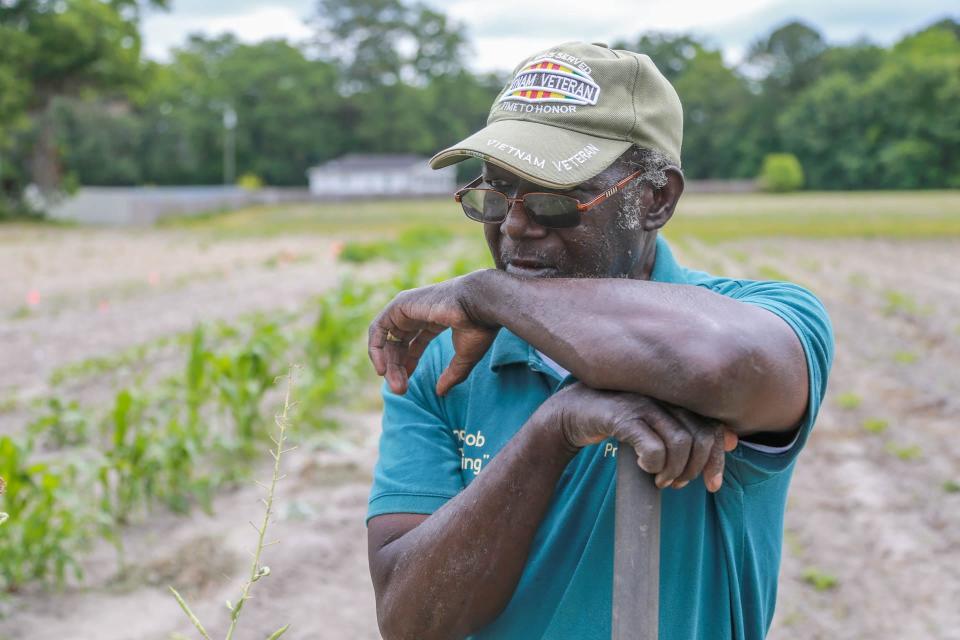
Down the road, Robert “Uncle Bob” Johnson and his brother, Willie, receive frequent offers on their 30-acre farm in the heart of the Monteith community, which has stood since the end of the Civil War. They refuse to sell, but each year brings higher property taxes and declining city services to The Promised Land Farm.
Uncle Bob's nephew, Tony Johnson, was 14 when his family’s land off Monteith Road was annexed. He remembers how the adults would talk. They had to start paying water and sewer taxes, but didn’t get those services for several years. The city cleaned out their ditches at first, but that soon stopped, Johnson said. The only boon, he remembers, was getting a trash can.
“Our life was just kind of disrupted because we just kept to ourselves,” said Johnson, who still lives in Monteith with dozens of family members. “We didn't bother nobody.”
And like the other Black communities in Port Wentworth, Monteith is aging. Most of the residents are in their 70s or older. It’s harder for them to keep up their yards and haul their trash cans down long gravel roads to the pick-up spots since city trucks won’t venture down the “private roads” they live on.
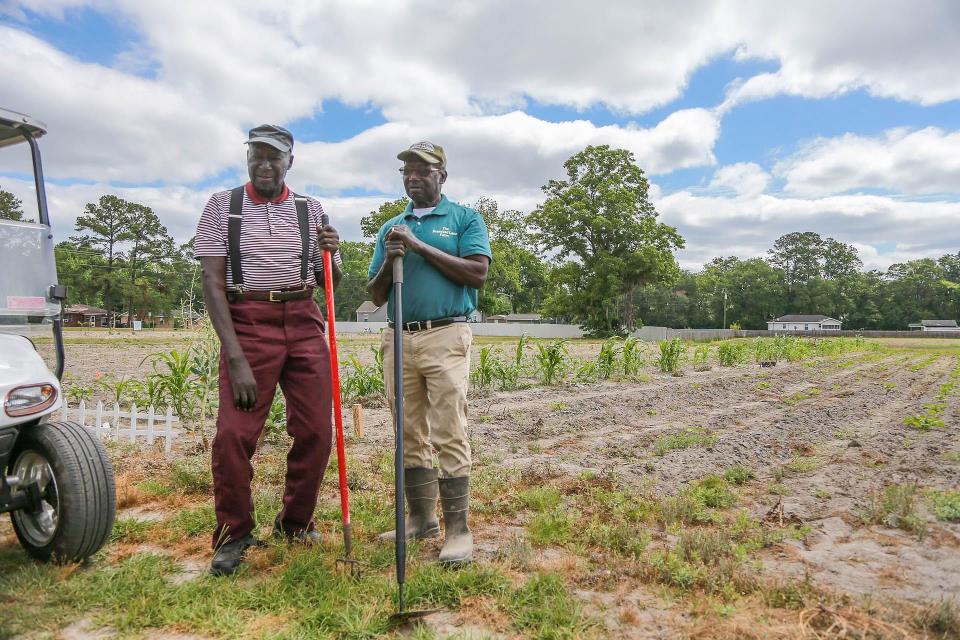
Jane Fishman: Among the urban sprawl of Port Wentworth sits sea of collard greens and Promised Land Farm
Storm drainage issues plague those in Monteith, too.
“At one time when (the city) first came, they did clean into ditches,” Johnson laughed. “And then they stopped. It stopped way back in the early '90s.”
The communities were some of the last to have water and sewer installed at their houses. Most in Monteith still use septic tanks for their sewage and wells for their water, unwilling to pay the higher water rates reserved for north Port Wentworth residents. The city ran a water line along the backside of Benton’s property, only to bypass her community.
The water was for a Rice Hope subdivision, named after a plantation once owned by the McIntosh family.
“How you gonna run a water line right behind me, right behind there,” Benton points toward her backyard, “and roll on down to 21, make a left turn, go to Rice Hope and don't include us?”
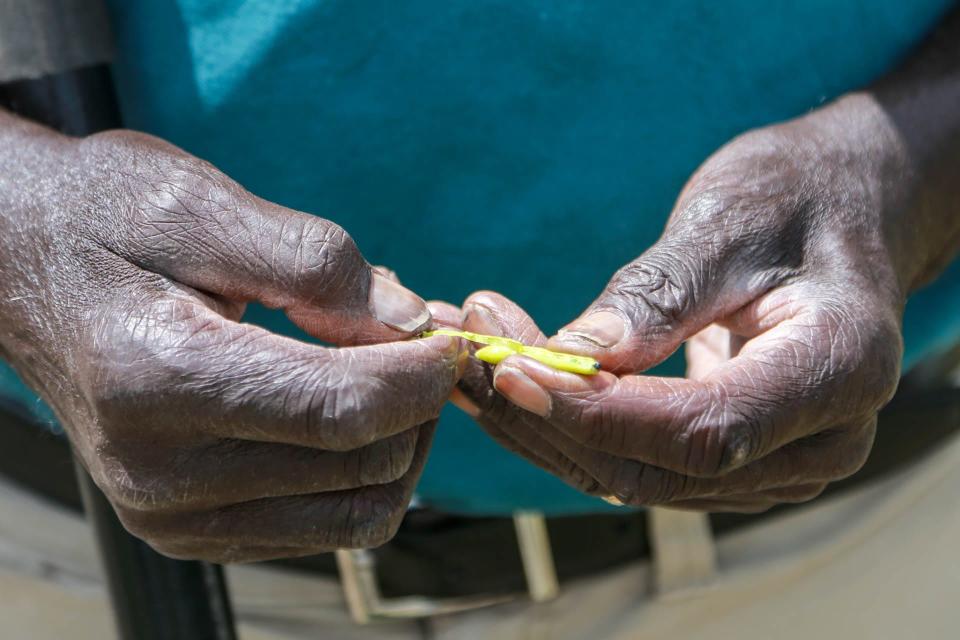
With the exception of one too-remote property, water and sewer were provided to all four communities as a result of a 2009 settlement agreement with the city, which stemmed from a lawsuit filed six years prior.
Johnson said the city's apathy toward his community has left them vulnerable to development.
People in Monteith, Saussy and Berrien “live in fear that next month when they get them warehouses up, their trucks are gonna come up here, more traffic will come up here. And it's gonna change the way they live,” Johnson said.
He’s talking about Hendley Road, a spindly, two-lane street that connects Monteith to Georgia 21. Across 10 acres, trees have been cleared and construction vehicles sit atop mounds of dirt, ready to build a long-planned logistics and warehouse park. It’s the closest industrial development has come to Monteith’s doorstep.
Grange Road morbid example of what's to come
Those in Monteith's fear of displacement is rooted in history and evidence.
Twenty years ago, the first ax fell on one of the city’s Black communities. The state condemned and demolished eight Black-owned homes on the southside of Grange Road, a small community of about 30 people.
A year later, squeezed by the Georgia Ports Authority and the growing industrial businesses building along their road, the remaining homeowners on Grange Road signed a deal to sell their land to a developer.
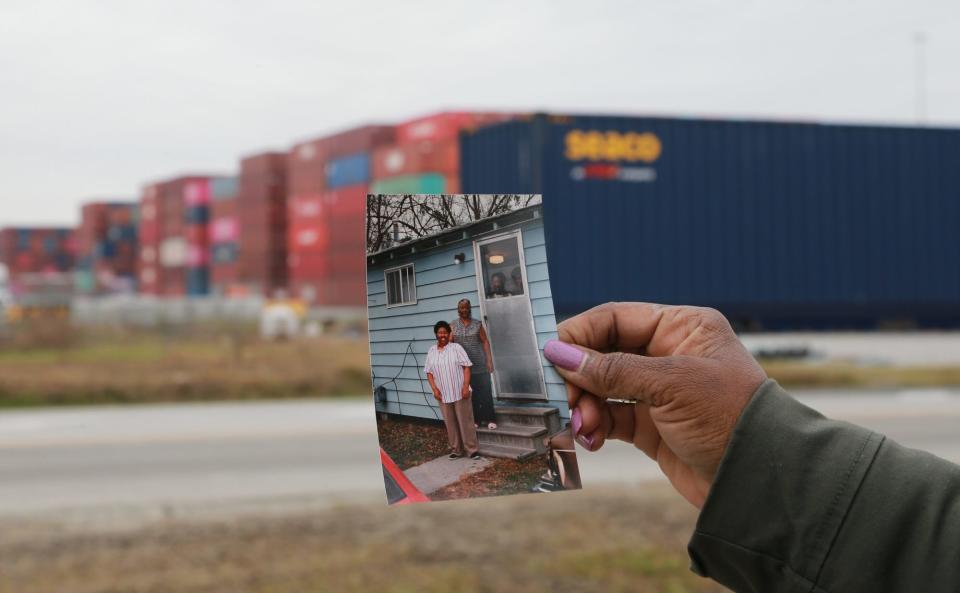
Now, the road is a swarm of dust and sand. Most of it is owned by GPA, the rest by the city of Port Wentworth and developers. No one lives there; many believe the residents were displaced to Garden City or Pooler.
“They destroyed the entire Grange Road community, church and all," Benton recalls. “After they destroyed it in May of 2001, they took $5 million of our tax money to run water and sewer down Grange Road.”
Earlier this year, GPA bought the tract of Grange Road for $500,000 from the city.
“How you gonna buy an apple for $10 and give it away for one?” Benton said as she threw her hands in the air.
Benton wants to see the local government own up and take responsibility. Splitting the city in two, or selling out to developers won't fix the issues she faces on Saussy Road, nor will it reclaim the quality of life so many sought when they moved to Port Wentworth. Be honest, and follow the law, Benton pleaded.
"It's that simple."
Zoe covers growth and how it impacts communities in the Savannah area. Find her at znicholson@gannett.com, @zoenicholson_ on Twitter, and @zoenicholsonreporter on Instagram.
This article originally appeared on Savannah Morning News: Port Wentworth's Black communities threatened by development, neglect

